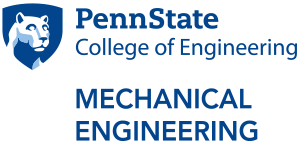
The founders of Medulate, Penn State associate professor Scarlett Miller and associate professor Jason Moore with Ben Franklin Technology Partners Entrepreneur Coach Bob Dornich.
TechCelerator Competition Awards $10,000 to Medical Ed Tech Startup
February 1, 2019
The TechCelerator program helps budding startups de-risk their business venture, then gives them an opportunity to competitively pitch their idea to a panel of judges for a top prize of $10,000—an amount that could launch their business to the next stage. Technology startups presenting new ideas for cash prizes is exciting, but even more inspiring is seeing those ideas changing the world for the better.
This year’s winner, Medulate, is developing a suite of medical simulators geared toward increasing the efficiency and effectiveness of medical education, a real-world challenge. The team plans to use their winnings to take their product one step closer to market.
TechCelerator Director and Coach, Bob Dornich, ensures startup teams graduate with a professional market research report, a “proforma” (a forecasted budget), a basic business plan and a strategy for moving forward.
“The most exciting part of the TechCelerator is watching these amazing people learn the fundamentals of business, says Dornich. “And in many cases, launch a successful organization that creates jobs and brings innovative products to market.” Medulate experienced this first hand.
“This money means a lot as we build our business and improve the educational experience for medical students,” says Medulate co-founder and Penn State associate professor in the School of Engineering Design, Technology and Professional Programs (SEDTAPP), Scarlett Miller. She says that without the TechCelerator @ State College, Medulate would be nowhere near where they are today.
“We’re thrilled we were able to convince others to believe in our company as much as we do,” said Miller.
The December 6th TechCelerator competition in Innovation Park showcased six other tech startups, including:
- Actinic, a technology that decreases the curing time for silicones so they can be used in the 3D printing processes;
- Go2Gro, a delivery system platform to deliver orders in two hours or less;
- GreenBriq, a process for transforming invasive plant species into alternative fuel sources;
- Kijenzi, a system for 3D printing medical equipment in underserved areas;
- Power Ink, a method for harvesting collagen (BIO-ink) that can be 3D printed and someday used in surgical procedure;s
- Proptor Hoc Imaging, a microscopy solution for educational applications with high magnification and better resolution at a lower cost;
In six years, 92 teams have started companies following their participation in the TechCelerator. Combined, they have raised more than $35 million in funding, hired 196 people and earned a combined $14 million in revenue.
Located in the Technology Center at 200 Innovation Boulevard in State College, the TechCelerator @ StateCollege is a partnership among several of the area’s economic development providers, including Invent Penn State. It is a pre-business accelerator held twice a year in State College and three more times throughout the year in Altoona, Johnstown and Somerset.
For more information, visit www.techceleratorstatecollege.org.


